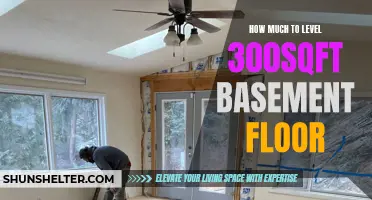
North Carolina is known for its beautiful landscapes, friendly communities, and diverse climate. If you're considering building a house in this charming state, one question you might be asking yourself is, Should I get a basement? While basements may not be as common in North Carolina as they are in other parts of the country, there are various factors to consider when making this decision. From extra storage space to potential storm shelter capabilities, let's delve into the world of basements and explore whether they are a worthwhile addition to your North Carolina home.
| Characteristics | Values |
|---|---|
| Cost | Varies depending on location and size of basement |
| Additional living space | Provides extra rooms for various uses such as bedrooms, home offices, or entertainment areas |
| Storage | Allows for convenient storage of items that may not fit in the main living areas |
| Resale value | Can increase the value of a home when it comes to selling |
| Protection from severe weather | Basements can serve as a safe area during storms or hurricanes |
| Potential for flooding | Basements may be more susceptible to flooding, especially in areas prone to heavy rainfall |
| Insulation | Basements can provide additional insulation for the rest of the home |
| Noise insulation | Separating activities in the basement from the main living areas can reduce noise disturbance |
| Natural light | Basements may have limited access to natural light depending on their design |
| Access to utilities | Basements often house important utility systems such as HVAC units, water heaters, or electrical panels |
| Construction feasibility | The feasibility of constructing a basement depends on various factors such as soil conditions and the layout of the property |
| Code requirements | Basements must meet building code requirements for safety and functionality |
| Maintenance | Basements may require regular maintenance to prevent issues such as moisture buildup or mold growth |
| Energy efficiency | A well-insulated basement can contribute to overall energy efficiency of the home |
What You'll Learn

Benefits of Having a Basement in North Carolina Homes
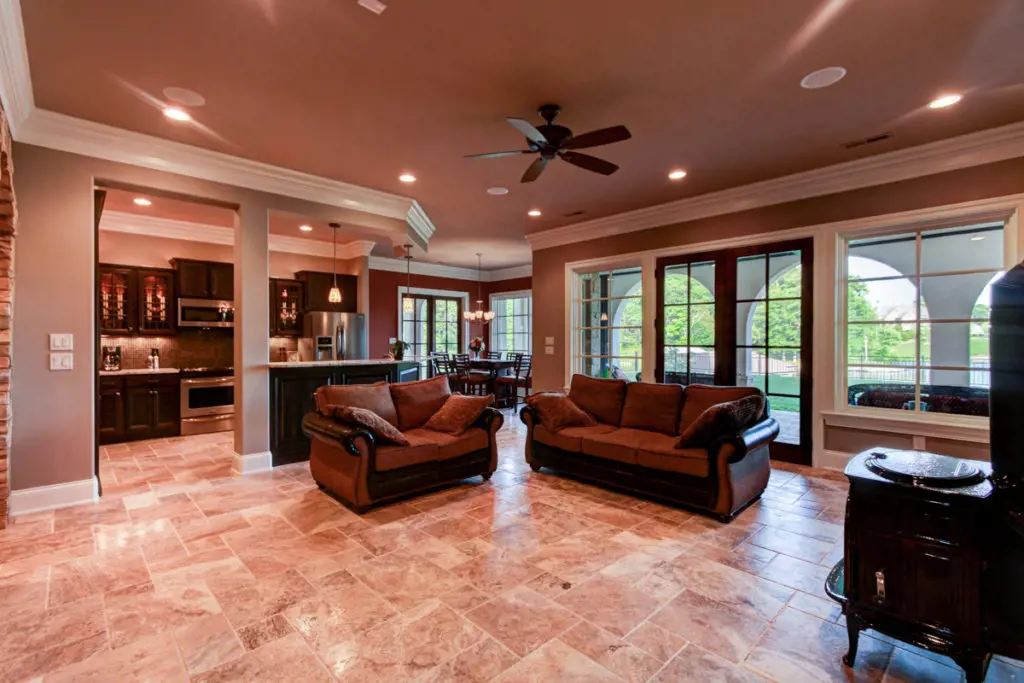
If you're currently considering building or buying a home in North Carolina, you may be wondering whether or not you should include a basement in your plans. While not all homes in North Carolina have basements, there are several benefits to having one that may make it worth your consideration. In this blog post, we will explore some of the advantages of having a basement in a North Carolina home.
- Additional Storage Space: One of the primary benefits of having a basement is the extra storage space it provides. Whether you need a place to store seasonal items such as holiday decorations or simply want a designated area for storage and organization, a basement can be a valuable asset. With a basement, you can keep your living spaces clutter-free and have easy access to your belongings whenever you need them.
- Protection from Extreme Weather: North Carolina is prone to severe weather events such as hurricanes and tornadoes. Having a basement can offer you a safe and secure area during these weather emergencies. In the event of a severe storm or tornado warning, you can take refuge in the basement, which provides a level of protection that other parts of the house may not offer. It can be reassuring to know that you have a designated space to seek shelter and protect yourself and your loved ones during extreme weather conditions.
- Potential for Additional Living Space: A basement can provide opportunities for expanded living space. Many homeowners in North Carolina choose to finish their basements and convert them into additional bedrooms, home offices, recreational areas, or even separate living quarters. Finishing a basement allows you to maximize the square footage of your home and create functional spaces that suit your specific needs. Whether you need a space for guests, a home gym, or a dedicated area for hobbies, a finished basement can provide the flexibility and versatility to accommodate these requirements.
- Noise Reduction: If you live in a busy area or have a large family, a basement can be a great way to create a quiet and peaceful retreat. The concrete walls and floor of a basement can help dampen sound, making it an excellent location for a home theater, music room, or a place to escape and relax without being disturbed by the noise from above.
- Increased Property Value: Having a basement can significantly increase the value of your home. Potential buyers in North Carolina often consider a basement to be a valuable addition due to its versatility and potential for additional living space. If you ever decide to sell your home in the future, having a finished or unfinished basement can be a strong selling point that sets your property apart from others in the market.
In conclusion, there are numerous benefits to having a basement in a North Carolina home. From providing extra storage space to protecting you during extreme weather events, a basement can enhance your living experience and increase the value of your property. If you're considering building or buying a home in North Carolina, it's worth considering the advantages that a basement can offer.
Unlock the Secrets: How to Obtain the Space Suit Hidden in the Lodge Basement
You may want to see also

Factors to Consider Before Building a Basement in North Carolina
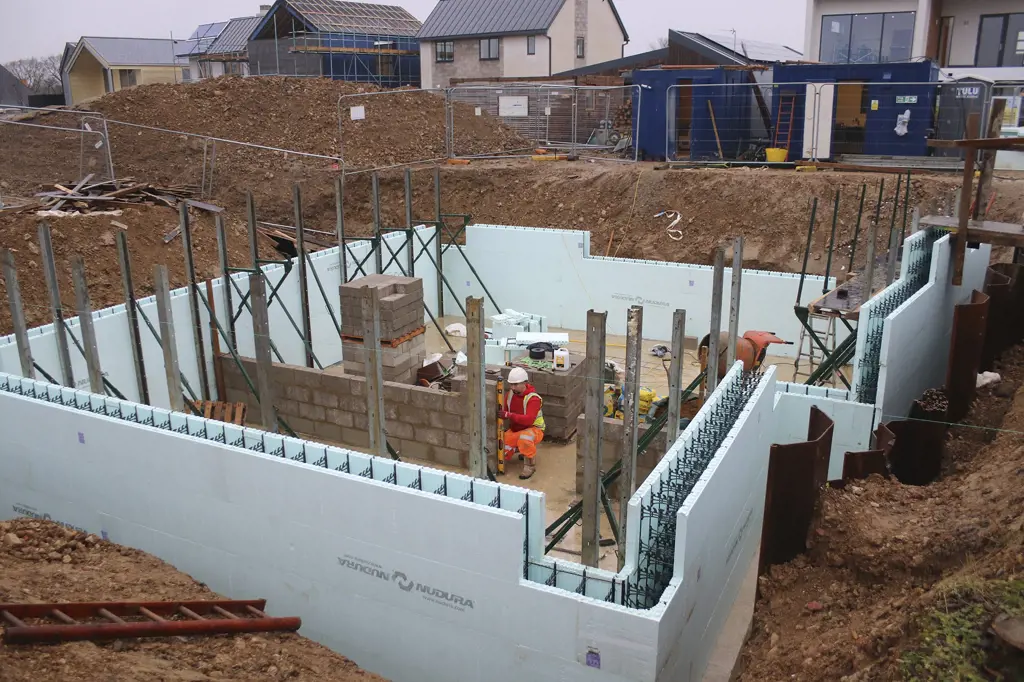
If you are planning to build a home in North Carolina, one big decision you may need to make is whether to include a basement in your design. Basements can offer numerous benefits, but they can also come with several considerations that you need to take into account. Before making a final decision, it's important to weigh the factors and determine whether a basement is the right choice for your needs. Here are a few key factors to consider before building a basement in North Carolina:
- Local Climate: North Carolina has a relatively mild climate, with hot summers and mild winters. If you live in an area that experiences high levels of rainfall or flooding, having a basement can provide valuable storage space and extra protection for your belongings. Basements are less common in coastal areas due to the risk of flooding and hurricanes, so consider the specific climate and terrain of your location when deciding whether to build a basement.
- Construction Costs: Building a basement can be a significant investment, so it's essential to consider the additional costs involved. Excavation, foundation walls, and waterproofing are expenses that come with building a basement. Before making a decision, consult with contractors and obtain estimates for the total cost of building a basement. Compare these costs to the potential benefits and value that a basement would add to your home.
- Functional Needs: Think about how you plan to use the space in your home. Basements can provide valuable additional living space, whether it's a family room, home theater, or a guest suite. If you have specific functional needs that would benefit from the extra space, a basement may be a worthwhile investment. On the other hand, if you don't anticipate using this extra space regularly, it might not be necessary to build a basement.
- Resale Value: Building a basement can significantly increase the resale value of your home. Additional square footage can attract potential buyers and give your home a competitive edge in the market. However, it's important to consider the local real estate market and the preferences of homebuyers in your area. Research comparable homes in your neighborhood to evaluate whether the added expense of a basement will result in a higher resale value.
- Environmental Considerations: North Carolina has its fair share of environmental factors that may impact a basement. If your property is located in an area prone to flooding, hurricanes, or high groundwater levels, you may need to invest in additional waterproofing measures to ensure the basement remains dry and usable. Consulting with experts in basement construction can help you understand the specific environmental considerations of your location.
In conclusion, building a basement in North Carolina is a decision that should be based on careful consideration of various factors. While basements can offer additional living space and increased home value, it's important to balance these benefits against the costs and potential risks specific to your location. Evaluate your functional needs, climate, construction costs, and environmental factors before making a final decision. Consulting with professionals and conducting thorough research can help you make an informed choice that best suits your needs and preferences.
Effective Ways to Eliminate Little Worms in Your Basement
You may want to see also

Potential Drawbacks of Having a Basement in North Carolina Homes
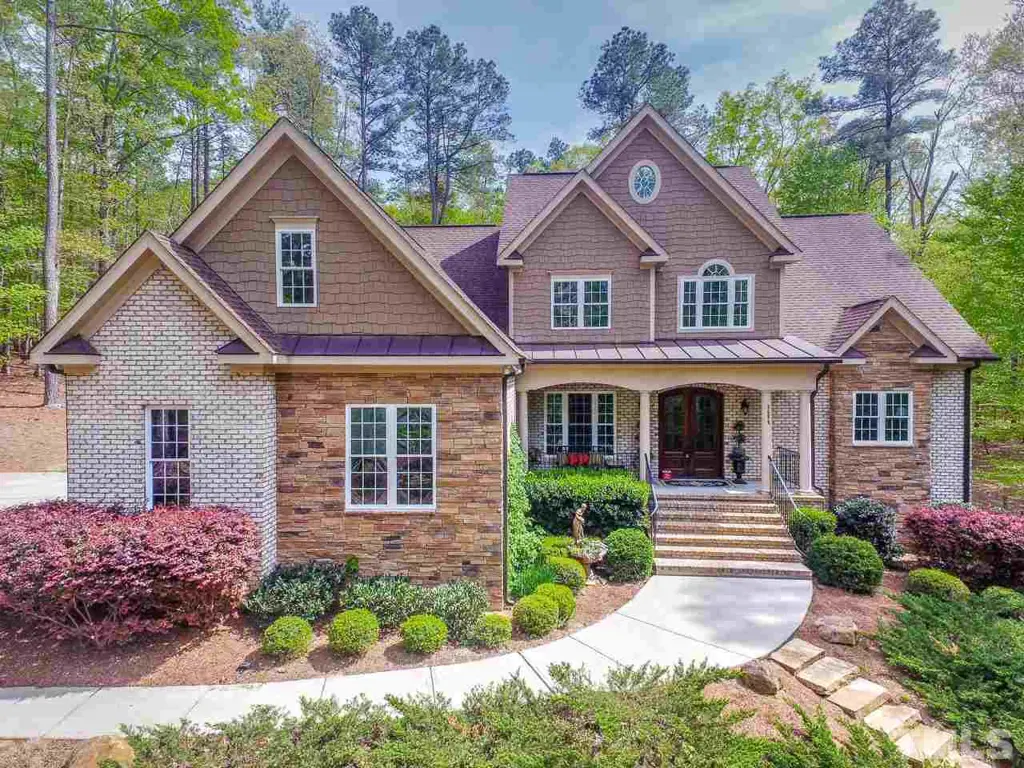
Basements can be a great addition to homes in certain parts of the country, but there are some potential drawbacks to consider when thinking about getting a basement in North Carolina. Here are a few things to keep in mind:
- Climate: North Carolina has a humid subtropical climate, which means that the area experiences hot, humid summers and relatively mild winters. This can create challenges when it comes to basements, as moisture can easily seep into the space. If not properly sealed and waterproofed, basements in North Carolina homes can become damp and prone to mold and mildew growth.
- Flooding: In addition to the humid climate, some parts of North Carolina are prone to heavy rain and flooding. This can be a major concern for homeowners with basements, as the risk of water damage increases significantly. It is important to take measures to prevent flooding, such as installing a sump pump or a drainage system, but this can be an additional cost and maintenance requirement.
- Construction Costs: Adding a basement to a new home or excavating an existing home to create a basement can be a costly endeavor. The soil in North Carolina can be rocky and challenging to excavate, which can drive up construction costs. Additionally, basement construction requires specialized knowledge and skills, so it is important to work with experienced professionals, which can also add to the overall cost.
- Limited Use: Depending on your needs and lifestyle, a basement in North Carolina may not offer as much functionality as it would in other parts of the country. The mild winters mean that the need for additional living space or storage may not be as pressing. Additionally, basements can feel dark and closed off, which may not be ideal for those who prefer open and airy living spaces.
- Resale Value: While basements can add value to a home in some areas, the resale value of a basement in North Carolina may not be as high. Many homebuyers in the state may not prioritize a basement as much as they would other features, such as outdoor living spaces or energy-efficient upgrades. This is something to consider if you plan on selling your home in the future.
In conclusion, while basements can offer extra storage space or living areas in some parts of the country, there are potential drawbacks to consider when thinking about getting a basement in North Carolina. The humid climate, the risk of flooding, the construction costs, limited use, and the impact on resale value are all factors that should be carefully considered before making a decision. It is important to weigh the pros and cons and consult with professionals before proceeding with basement construction or renovation in North Carolina homes.
Effective Ways to Store Totes in a Damp Basement
You may want to see also

Alternatives to Basements in North Carolina Homes
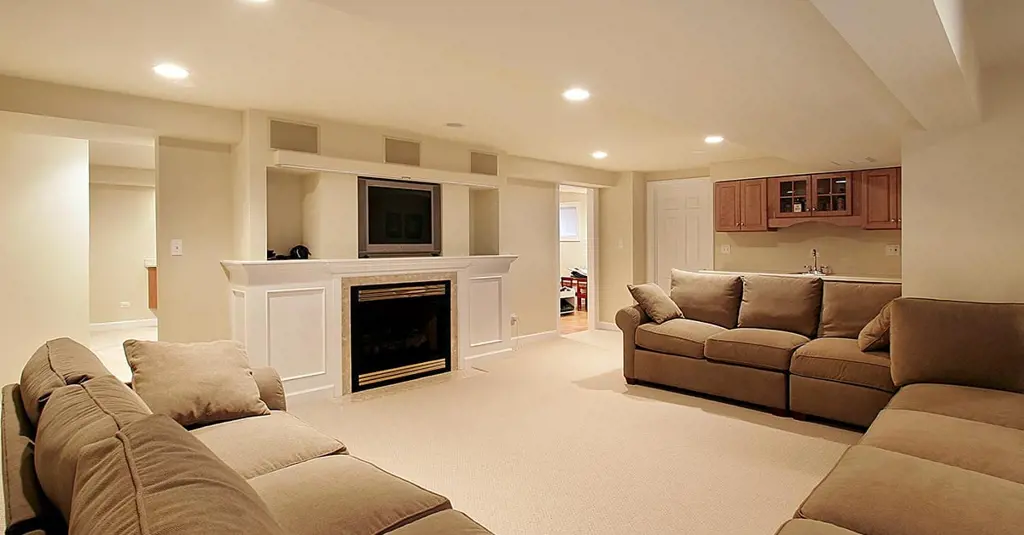
If you are considering building a home in North Carolina, you may be wondering whether or not to include a basement. While basements are a common feature in many homes across the country, they are not as prevalent in North Carolina due to a variety of factors such as soil conditions, flooding risks, and building codes. However, there are several alternatives to basements that you can consider when designing your new home.
- Crawl Spaces: One popular alternative to basements in North Carolina is a crawl space. A crawl space is a shallow area under the home that provides access to plumbing, electrical, and HVAC systems. Crawl spaces are typically about 3-4 feet in height and can be used for limited storage. They are a cost-effective alternative to basements and can be easier to maintain and repair.
- Slab-on-Grade: Another alternative to basements in North Carolina is a slab-on-grade foundation. This type of foundation consists of a concrete slab poured directly on the ground. Slab-on-grade foundations are commonly used in areas with sandy soil and are resistant to moisture and flooding. While they do not provide additional living space or storage like basements, they can be a more affordable option and require less maintenance.
- Attached or Detached Garage: If you need additional storage space, one option is to include an attached or detached garage in your home design. Garages can provide ample space for storing items such as tools, outdoor equipment, and vehicles. This can be a convenient solution if you do not want to build a basement but still need extra storage space.
- Building Up: If you are looking to maximize your living space without constructing a basement, consider building upward instead. Adding a second floor to your home allows you to create additional bedrooms, a home office, or a playroom for your children. Building up can be a more cost-effective option compared to building a basement, especially if you already have a large lot or if you are planning to build a two-story home.
- Outdoor Storage Solutions: If the main reason you want a basement is for storage, there are plenty of outdoor storage solutions that you can consider. This includes sheds, storage containers, and even custom-built outdoor storage units. These options can provide you with ample space to store items such as lawn equipment, seasonal decorations, and outdoor furniture, without the need for an entire basement.
When deciding whether or not to include a basement in your North Carolina home, it is important to consider your specific needs, budget, and the local building codes and regulations. Alternatives such as crawl spaces, slab-on-grade foundations, garages, building up, and outdoor storage solutions can provide you with the space and functionality you need without the added cost and potential risks associated with basements. Ultimately, the decision should be based on your personal preferences and what will best suit your lifestyle.
10 Easy Ways to Make Your Basement Smell Better
You may want to see also
Frequently asked questions
The decision to get a basement in North Carolina depends on your specific needs and preferences.
Basements are not as common in North Carolina as they are in other parts of the country due to the region's high water table and the prevalence of sandy soil.
A basement can provide additional storage space, a place for recreational activities, a safe haven during severe weather, and potentially increase the value of your property.
There are some downsides to having a basement in North Carolina, such as the risk of flooding, issues with moisture and humidity, and the potential for higher construction costs.
Yes, if you are concerned about flooding or other issues associated with basements in North Carolina, you may consider alternative options such as crawl spaces, raised foundations, or utilizing above-ground storage solutions.







